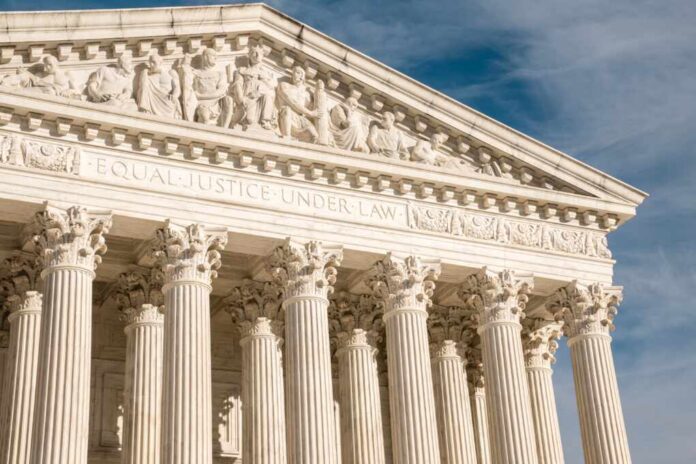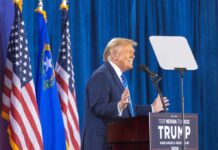
The Biden administration’s Department of Justice Special Counsel Jack Smith filed a brief with the Supreme Court on Monday asking it to reject President Donald Trump’s claim to executive immunity. In part, Smith wrote, “The President’s constitutional duty to take care that the laws be faithfully executed does not entail a general right to violate them.”
The crux of Smith’s argument against Trump centers on the 45th president’s challenges of the 2020 election results. President Trump argues that the factual claims made by Smith in his indictment are all related to Trump’s work in the scope of his presidential duties. Those actions are immune from criminal claims under the Constitution.
Smith’s aggressive and novel interpretation of federal law is essentially based on an unusual reading of 18 U.S. Code § 1512(c). Smith is stretching that statute in an unprecedented manner. Section 1512(c) defines a federal felony for anyone who “corruptly (1) alters, destroys, mutilates, or conceals a record, document, or other object, or attempts to do so, with the intent to impair the object’s integrity or availability for use in an official proceeding; or (2) otherwise obstructs, influences, or impedes any official proceeding, or attempts to do so.”
Jack Smith Signals He’ll Try To Circumvent SCOTUS If It Says Obstruction Charges Aren’t Real Crimes https://t.co/K0SNH8nw0Q
— The Federalist (@FDRLST) April 10, 2024
A footnote in Smith’s brief indicates that he plans to attempt to convict President Trump if the Supreme Court rules that he is immune from Smith’s charges because of executive immunity.
The Supreme Court is currently considering a related case, Fischer v. United States, regarding the prosecution of January 6 defendants. A favorable ruling for the defendant in that case would devastate Smith’s prosecution of President Trump under Section 1512(c).
Smith’s footnote alludes to his plan to attempt an end-around: “Petitioner asserts that the grant of review in Fischer v. United States suggests that the Section 1512(c)(2) charges here impermissibly stretch the statute. But whether the Court interprets Section 1512(c)(2) consistently with a natural reading of its text or adopts the evidence-impairment gloss urged by the Petitioner in Fischer, the Section 1512 charges in this case are valid.”
In another unusual argument, Smith adds that “the use of falsehoods or creation of ‘false’ documents satisfies an evidence-impairment interpretation.”
The footnote previews Smith’s plan to attempt to salvage his case. By claiming the “alternative electoral certificates” supported by Trump and his team and submitted to Congress “represent ‘documents’ that were fraudulently used in an ‘official proceeding.’” Smith would thereby hope to move ahead on subsection (1) of Section 1512(c) even if the high court finds President Trump immune from prosecution under subsection (2).
Smith’s efforts to undercut Trump’s defense are part of the Biden administration’s politicized attempt to influence the outcome of the 2024 election. To be successful, the special counsel’s odd legal arguments would require the Supreme Court to equate ordinary and legitimate political action and speech with outright criminal conduct.
































